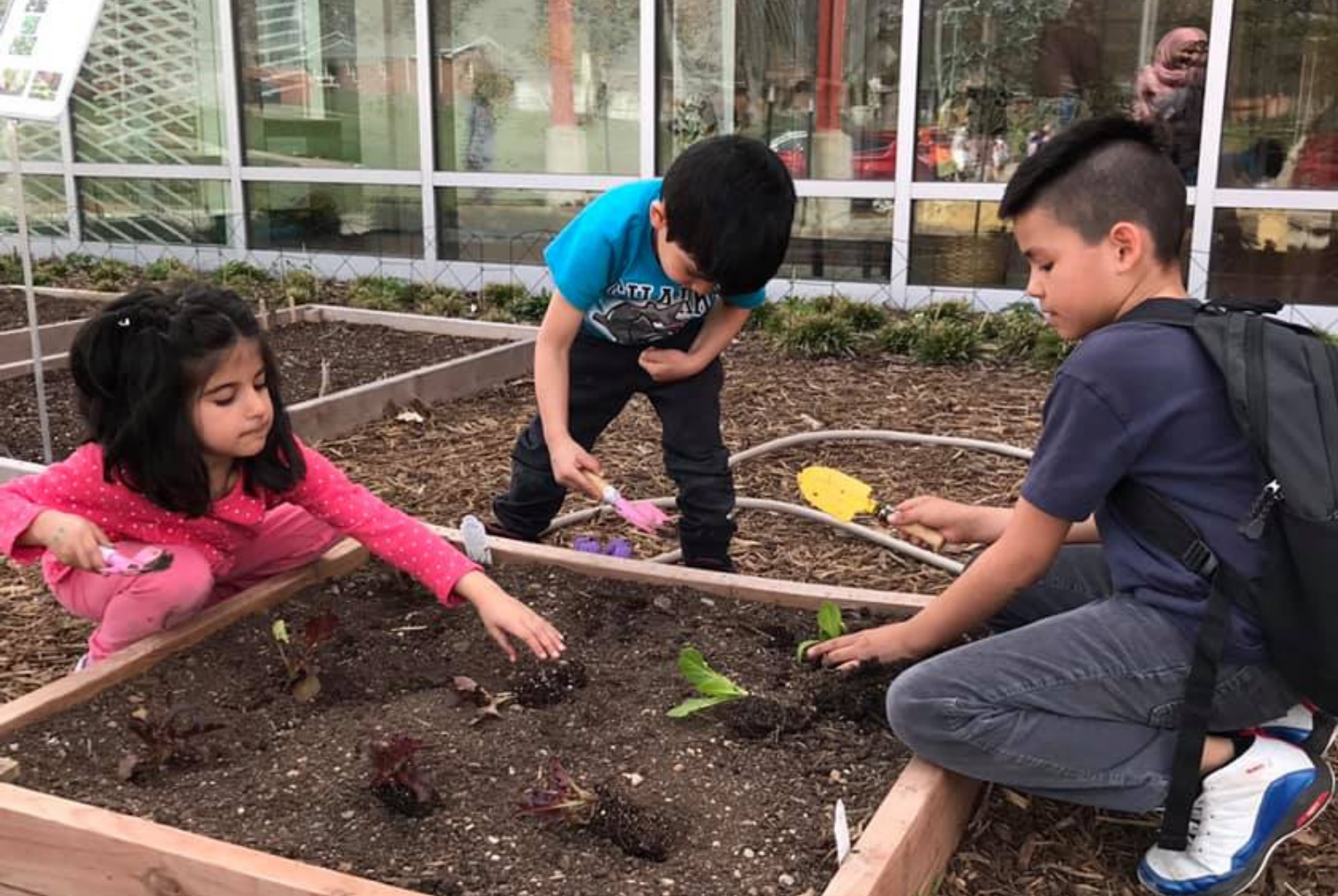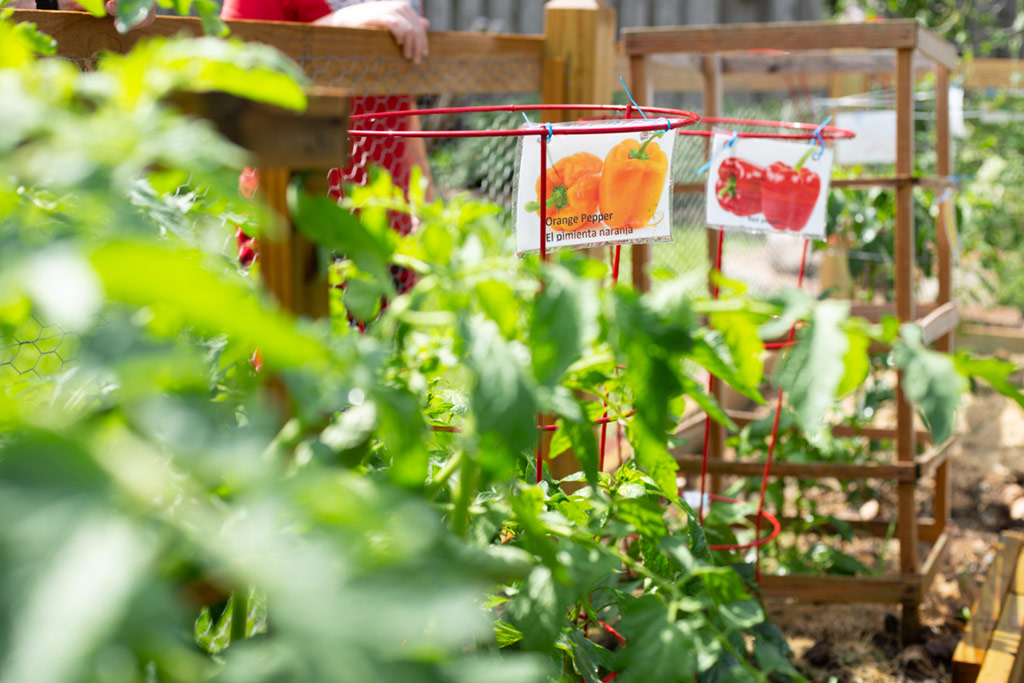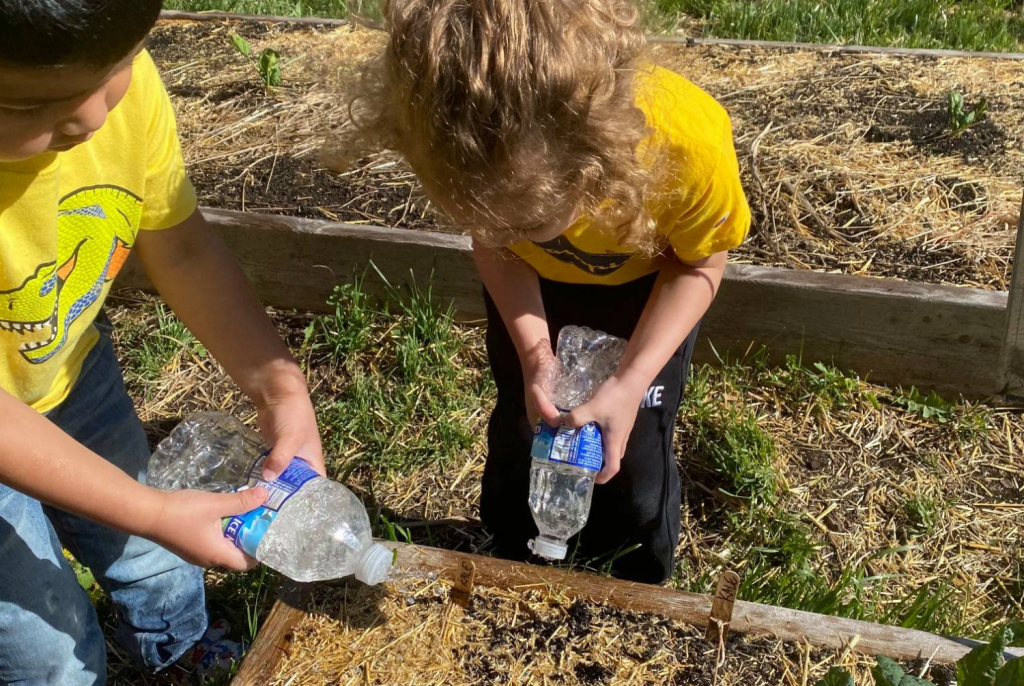
Step Up To Quality Stories
Farm to Preschool Builds Healthy Eating Habits for Nebraska’s Children
Healthful, nutritious food is important for everyone, especially young children. Eating habits start in infancy, and by the time children enter elementary school, those habits are fairly established. So, if we want our children to have lifelong healthy eating habits, early intervention and experience with healthy eating is an important part of their development.
Get connected with Farm to Preschool
The Nebraska Department of Education (NDE) understands the importance of establishing early, healthy habits, so they began to include Farm to Preschool (also referred to as Farm to Early Care and Education) in the work of Nutrition Services in 2015 as a way to provide information to child care centers and family child care homes about the value of doing this activity. Farm to Preschool is not a program that you enroll in — it’s a slate of opportunities that include local food procurement, experiential education and school garden activity that are implemented by centers to educate children on where their food comes from.

Farm to Preschool activities also support core principles of high-quality early childhood education, the same principles that Step Up to Quality promotes throughout each of its steps. Learning through play, interacting with children on their level and providing tactile educational opportunities can all happen with Farm to Preschool efforts.
The NDE now hosts a comprehensive webpage for Farm to Preschool, providing guidance for providers and families on purchasing local and in-season foods, ideas for educational activities and use of gardens, tools for how to get started, and fact sheets and reports on Farm to Preschool research specific to Nebraska. You can reach out to Marla Kurtenbach, a nutrition services program specialist at the NDE, at marla.kurtenbach@nebraska.gov with any questions about Farm to Preschool, too.

“This doesn’t have to be a huge, time-consuming thing,” said Marla. “Any action can support local food systems, and starting with our littlest eaters just makes sense.”
Getting involved with Farm to Preschool can be as simple as making a commitment to incorporate a local food once a month in the meals you serve to the children in your care. Once you get your footing, you can take it even further: Tour a farm or have a farmer or gardener visit your program, grow your own garden, prepare meals with children or purchase produce from farmers markets to taste test.
Purchasing locally grown food also allows the early childhood education field to support our local economy. When this food is in children’s meals and classroom curriculums, it supports Nebraska’s agriculture today and enables us to plant the seed of interest for a whole new generation of farmers and market gardeners. Check out the Nebraska Farm to Preschool toolkit to find where you can buy locally produced food and drinks.
Tips for incorporating new foods into home meals and child care settings
The earlier children are exposed to a variety of foods, the more likely they will continue these habits as they grow.
“When implementing changes to child nutrition program meal patterns or menus, consider that early child care eaters are still establishing their habits and tastes,” said Marla. “It can be a good strategy to implement changes first at the early child care level.”

Sometimes, children need multiple exposures to a food to be ready to try it, so don’t pressure them if they don’t develop an immediate interest. Mix new food in with other food that they already know and enjoy. For example, if you know they like a few certain vegetables, mix in one more new vegetable. You can also involve other things children are learning, like colors, into mealtime by using a variety of colorful produce. Nebraska Farm to Preschool provides sample menus for how local foods can be incorporated into meals.
If you choose to start a garden, whether it’s a big plot or a few potted plants, letting children be involved with its care can increase their willingness to try the healthy foods they helped grow.
Interested in other ways to boost quality?
If you’re not already enrolled, we’d love to have you join Step Up to Quality. We serve all child care and early childhood education programs throughout Nebraska with support and resources that continuously improve the quality of care provided. Learn more about our program benefits.
